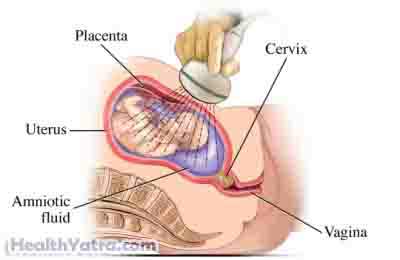Definition
Macrosomia is a condition in which a baby is abnormally large before birth. The average birth weight for babies is about 7 pounds. Babies with macrosomia have a birth weight of at least 8 pounds, 13 ounces or more.
Babies born with macrosomia are more likely to have low blood sugar, respiratory distress, and jaundice. They also have an increased risk of birth defects.

Macrosomia occurs in more than 10% of all pregnancies in the United States. It may lead to pregnancy complications such as a greater risk of cesarean delivery, damage to the birth canal, and injury to the baby during a vaginal delivery.
Causes
The most common cause of macrosomia is diabetes in the mother during pregnancy.
Risk Factors
Factors that increase the risk of giving birth to a baby with macrosomia include:
- Mother having diabetes
- Mother having gestational diabetes
- Mother and/or father of large size
- Excessive weight gain by the mother during pregnancy
Signs and Symptoms
The main symptom of macrosomia is a birthweight of at least 8 pounds, 13 ounces or more. This birthweight may be estimated during prenatal testing.
Diagnosis
Your doctor will ask about your symptoms and medical history. A physical and pelvic examination will be done. An ultrasound will be done to determine the size of the baby before birth.
Your doctor will estimate the birth weight and evaluate any dangers for the mother and/or baby.
If the fetal macrosomia may cause potential harm during a vaginal delivery, a Cesarean delivery may be scheduled.

Treatment
Talk with your doctor about the best treatment plan for you. Treatment options include:
Cesarean Delivery
Recommended for babies too large to be safely delivered through the birth canal.
Feeding babies with macrosomia soon after birth is important to prevent low blood sugar in the baby.
Prevention
Macrosomia may not always be prevented. Some steps that may help include: .
- Maintaining a healthy weight throughout pregnancy
- Controlling blood sugar if you have diabetes
- Receiving prenatal care to diagnose problems early and prevent complications
